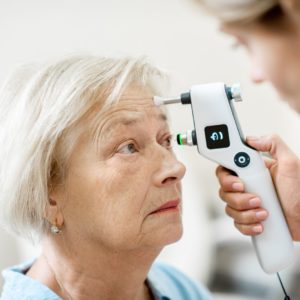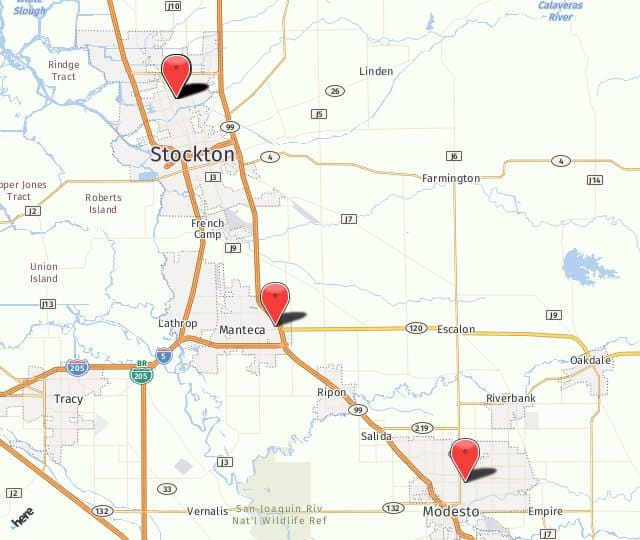Correcting an Eyelid Turning the Wrong Way

Due to various causes, a person’s eyelid can turn the wrong way. In some cases, the eyelid “turns in”. In others it “turns outward.” These conditions can lead to pain, irritation, and problems with tear drainage. Our oculoplastic surgeons at Central Valley Eye Medical Group can correct both of these eyelid conditions with surgery.
Entropion
Entropion is the term for when the eyelid “turns in.” This usually occurs on the lower eyelid. The lid may be turned inward at all times, or only when the eyelids are closed tightly. Either way, when this happens the skin and lashes rub on the cornea, which can be very painful. It can also make the eye sensitive to light and wind.
Causes of entropion
Entropion is usually a result of simple aging, as the muscles around the eyes can weaken. A spasm or simple relaxing of the muscles near the eye can cause the lower eyelid to turn inward. Other causes can be injury to the lid, a congenital defect, skin infections or certain inflammations. People who have had facial surgery, particularly in the mid-face, are more prone to entropion.
Fixing entropion
There are non-surgical options to remedy entropion such as lubricating eyedrops, Botox injections, even strategically placed stitches. But usually, entropion needs to be corrected with outpatient surgery by Dr. Tittler where the lid or lids will be repositioned.
The area is numbed with local anesthetic, sometimes with light sedation depending on the patient. If the entropion is due to muscle weakness, we may remove a small section of the eyelid to tighten the muscles in the area. If entropion is due to scars from injury or a prior surgery, we will utilize a skin graft in order to reposition the eyelid.
Ectropion
In contrast to entropion, ectropion is a “turning out” of the eyelid. Again, this typically occurs on the lower eyelid. The sagging skin of the inner eyelid is exposed, either in one part or the lid or across the entire lid. When ectropion happens, this prevents tears from draining correctly out of the eye, leading to chronic tearing, redness, pain, a gritty feeling, crusting of the eyelid, mucous discharge, even a breakdown of the cornea.
Causes
Like entropion, ectropion is usually a result of the muscle weakness that comes with age. But ectropion can also result from nerve damage, sun damage, tumors, burns, or eyelid surgery (blepharoplasty) where too much skin was removed. The condition can also be congenital.
Fixing ectropion
Artificial tears can provide temporary relief from the dryness that accompanies ectropion, but surgery is usually necessary to fix the condition. The surgical options/methods are similar to those for entropion. If muscle weakness is the cause, a small portion of the eyelid may be removed, and the muscles tightened. If too much skin was removed during blepharoplasty, a skin graft will be necessary.
Correcting entropion or ectropion should be trusted only to a surgeon with the experience of our oculoplastic specialists at Central Valley Eye Medical Group. While both conditions can cause irritation and pain to the eyes, their correction is relatively straightforward. If you have either of these eyelid malposition problems, please call us at (800) 244-9907 to set up a consultation.
Posted in: Reconstructive Oculoplastic Services

